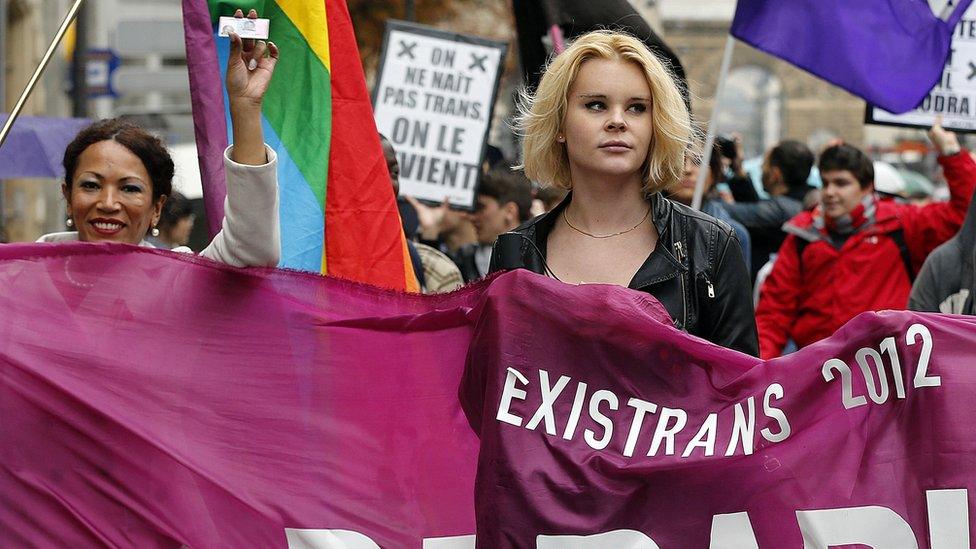Transgender rights: France scraps sterilisation in status law
- Published

The new law follows years of pressure from gay and transgender people in France
Gay and transgender activists have welcomed a new French law that lets transgender people change their legal status without having to be sterilised.
The activist group ILGA-Europe called it "clear progress" that "another European country has dispensed with the shameful practice of sterilisation".
But it regretted, external that trans people in France will still have to get a court to recognise their gender change.
Laws in Denmark, Malta, Ireland and Norway have gone further, it said.
In those countries, legal gender recognition relies on the principle of "self-determination" - dispensing with medical or judicial requirements.
That principle was also advocated by the Council of Europe - the top European human rights watchdog - in an anti-discrimination resolution, external last year.
The Council of Europe says transgender people often face discrimination in Europe, in the workplace, housing, health services or in the form of bullying and hate speech.
Gender has to be specified on passports, driving licences and many other essential documents.
Activists estimate there are tens of thousands of transgender people in France, but there are no official figures.
The French law passed on Wednesday gives trans people - adults and minors - the right to change their legal status in court. Previously such a change required proof that the person had been sterilised irreversibly.
Stephanie Nicot, head of the French LGBT Federation, deplored the fact that trans people would still have to go to court. "We're not offenders, and judges have more important things to do!" she said, quoted by Le Figaro (in French), external.
The UK, Spain and some states in the US also no longer require transgender people to be sterilised before they can get their gender officially changed.
- Published11 October 2016

- Published3 May 2016

- Published21 August 2016
